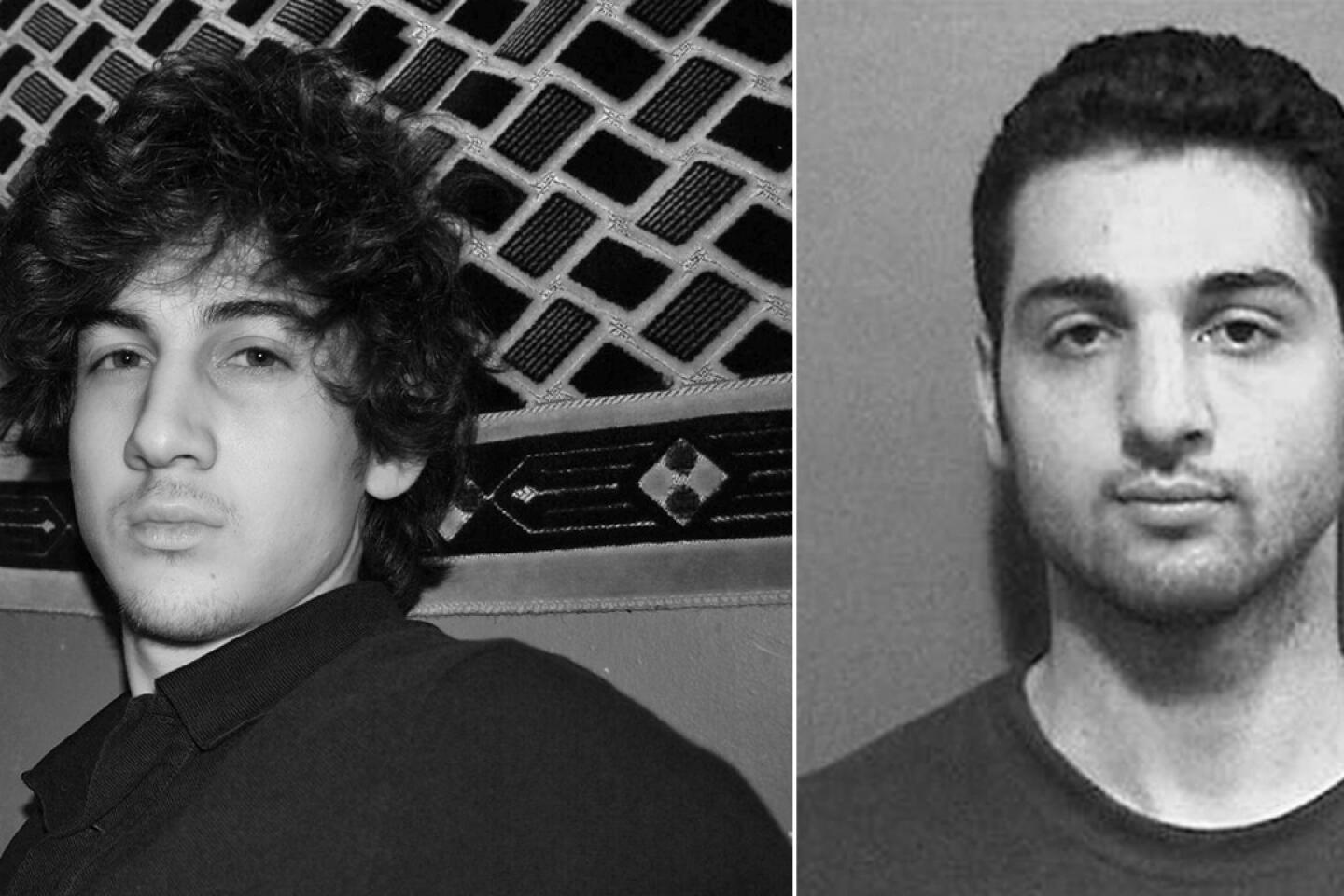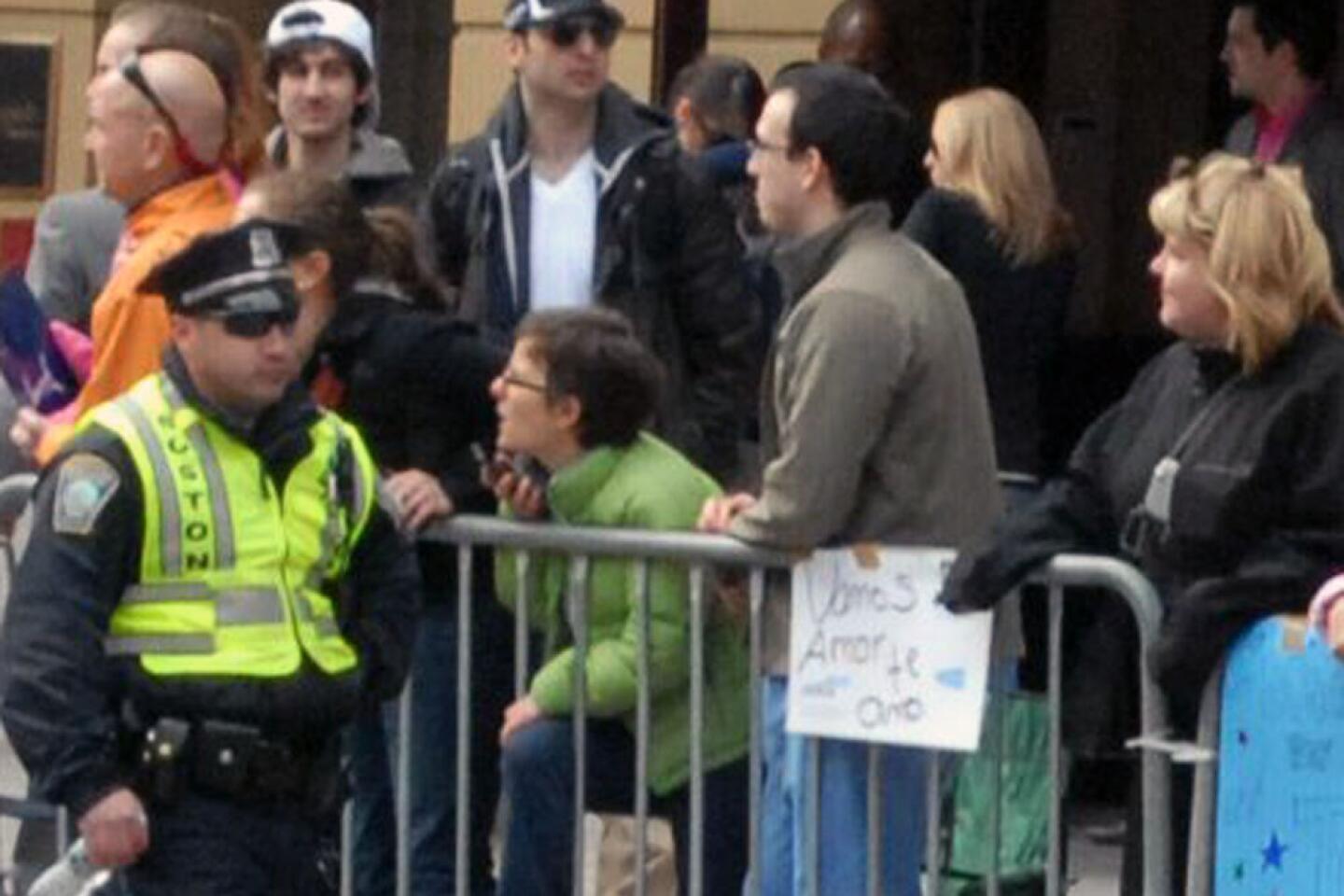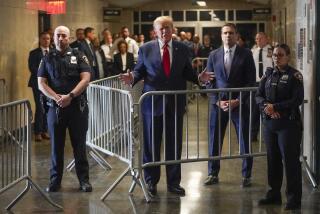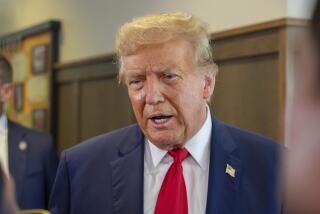Judge denies requests to move and delay Boston Marathon bombing trial
A federal judge Wednesday denied requests by defense attorneys for Dzhokhar Tsarnaev to move the case from Boston and delay the trial until September, setting the stage for jury selection to begin Monday in the Boston Marathon bombing attacks that claimed three lives and injured 260 people.
U.S. District Judge George A. O’Toole Jr. made the announcement in a brief court filing, saying he would explain his reasoning “shortly.”
The defense team quickly appealed the decisions, filing a legal request with the U.S. 1st Circuit Court of Appeals to order O’Toole to move the trial out of Boston and delay its start.
They told the higher court: “The nature and impact of the marathon bombings and related events, and the pretrial publicity engendered by those events, require a change of venue if Mr. Tsarnaev is to receive the fair trial by a panel of impartial, indifferent jurors guaranteed by the U.S. Constitution.”
It was unclear whether the appellate court would act before the start of jury selection on Monday. The legal maneuver may also serve as ammunition for appealing a guilty verdict should Tsarnaev be held accountable for the two April 2013 bombings. He has pleaded not guilty.
Defense lawyers have previously asked the judge to move the trial to western Massachusetts, New York City or Washington, D.C.
Defense attorneys have also sought a trial delay until September. They cited a government witness list, which remains sealed, that includes 590 law enforcement officials and 142 civilians. Prosecutors also have provided the defense a list of 1,238 potential court exhibits and 413 digital files. This month, prosecutors gave the defense 172 gigabytes of discovery material on seven computer discs and two hard drives.
Defense attorneys said that with that much material, they were not yet ready to proceed.
Government prosecutors vigorously opposed moving or delaying the trial.
The judge also had ordered both sides to file trial memos Wednesday, but any such filings have not been made public.
The government’s memo was expected to lay out much of the evidence against the young immigrant facing the death penalty in the marathon bombings.
Specifically, the memo was expected to shed new light on the trip by his older brother, Tamerlan Tsarnaev, to Russia and the north Caucasus region, a hotbed of Islamic radicalism. The visit prompted a query by Russian intelligence officials to the U.S. for more information about Tamerlan Tsarnaev.
The memo may also provide fresh details on allegations of how the two brothers obtained the explosives, built the pressure cooker bombs and then separately detonated the devices near the finish line of the annual race.
As for the defense, its memo might offer clues about how Dzhokhar Tsarnaev’s lawyers hope to spare him from the death penalty. Many observers expect them to argue that their client was simply under the spell of his older brother.
The vast majority of the case file remains sealed, including six filings on Wednesday and 21 on Tuesday, with no explanation of their contents.
Tamerlan Tsarnaev was killed in a shootout with police several days after the bombings.
Dzhokhar Tsarnaev was arrested the next day, hiding in a boat, where officials allege that he had scrawled notes admitting to the brothers’ role in carrying out the deadly attacks.
Born in Kyrgyzstan, as a child Tsarnaev emigrated with his family from Russia, taking political asylum in the U.S.
richard.serrano@latimes.com
More to Read
Start your day right
Sign up for Essential California for news, features and recommendations from the L.A. Times and beyond in your inbox six days a week.
You may occasionally receive promotional content from the Los Angeles Times.










